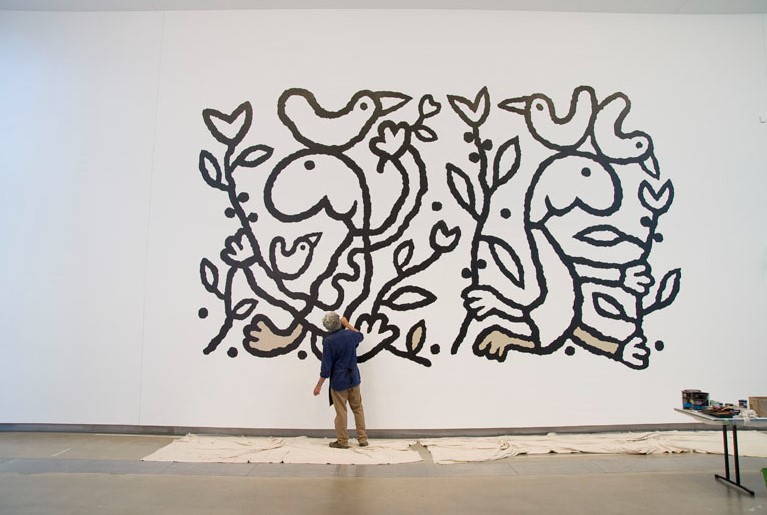Renowned Australian political cartoonist Michael Leunig reflects on his 55-year newspaper career and shares his future plans. Leunig, known for his charmingly naive cartooning style, recently penned his final cartoon for a major newspaper. Despite occasional criticism, his work resonated with millions of Australians.
As Leunig wraps up his long career, he reflects on the changing times and the disappearance of humor in contemporary society. His departure from The Australian, after being asked to leave, has brought a sense of relief and a fresh perspective. Leunig acknowledges the challenges of modern news and the impact it has on creativity and humor.
Looking back on his journey, Leunig recalls the vibrant creativity of the 1960s and the counter-culture movement that shaped his early career. He touches on the impact of censorship, cancel culture, and the changing social landscape. Despite facing backlash and hate mail, Leunig remains resilient and reflective.
As he enters a new chapter, Leunig contemplates the anxieties of the modern era and the loss of hope and joy in society. He speaks candidly about cancel culture, the power of the mob, and the importance of standing firm in the face of criticism. Leunig’s unique perspective and unwavering commitment to his craft have left a lasting impact on Australian culture. He was unable to figure out what it was. At the time, it was not widely known that such a style of letter bomb existed, originating from South Africa during a period of significant social unrest. Despite the letter being signed by someone claiming to be a “Pommy bastard,” the sender’s details did not match those from South Africa. Rather than opening the folder, Leunig and Tanner wisely sought security assistance, leading to police and army involvement. The army expert warned that the bomb could have caused serious harm. The incident was not publicized due to safety concerns, but it left a lasting impact on Leunig. He believed the sender was likely offended by a playful comment on cricket rather than a political cartoon. The ability to create such letter bombs was linked to the turmoil in South Africa at the time, highlighting the real threat of hate mail.
Furthermore, Leunig reflects on the changing landscape of comedy and society, noting a loss of humor and an increase in sensitivity. He joins other comedians in criticizing the trend towards political correctness, which limits freedom of expression. Leunig also comments on the media’s role in society, suggesting that news coverage is contributing to anxiety and fear. He calls for a more thoughtful and analytical approach to reporting. Ultimately, Leunig’s passion for cartooning stems from a desire to heal the world and bring joy through his art.
Cartoonists nowadays often utilize digital tools, but Leunig prefers the traditional method of getting ink on his hands to create something organic, raw, and primal.
In his upcoming project—a self-published book of cartoons and verses—Leunig intends to return to his roots and embrace simpler times.
He fondly recalls when family members would cut out clippings from magazines and adorn the walls with rhyming couplets or folk poetry.
Leunig envisions his new book as a nostalgic nod to those traditions, aiming to capture the charm of a bygone era.





